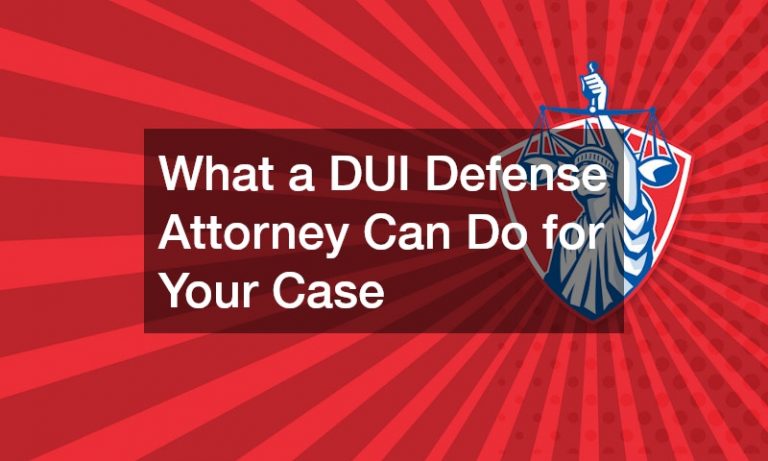

When life takes an unexpected turn and you’re injured because of someone else’s actions or negligence, the path to recovery can be overwhelming. From physical pain to emotional stress and the disruption of everyday life, the aftermath of an accident is difficult enough on its own. In situations like these, personal injury lawyers play a critical role in helping individuals seek justice and regain control.
But what exactly is a personal injury lawyer? What do they do, and how can they help? This article will break down everything you need to know, giving you a clear understanding of how personal injury legal services work and why they matter.
Understanding the Role of a Personal Injury Lawyer
A personal injury lawyer is a legal professional who specializes in cases where a person has been harmed due to another party’s negligence, recklessness, or intentional wrongdoing. These injuries could stem from a car accident, workplace incident, medical malpractice, defective product, slip and fall, dog bite, or other similar events.
The primary goal of a personal injury lawyer is to represent injured individuals (plaintiffs) and help them recover compensation for damages such as medical bills, lost income, pain and suffering, emotional distress, and other life-altering impacts of the injury.
Unlike criminal lawyers who prosecute or defend against criminal charges, personal injury lawyers deal with civil claims—where the focus is on obtaining financial recovery rather than imposing criminal penalties.
Key Responsibilities of a Personal Injury Lawyer
Personal injury attorneys perform a wide range of legal tasks to support their clients. Some of their core responsibilities include:
1. Case Evaluation
The process begins with a consultation, where the lawyer listens to your story, reviews evidence (such as medical records and police reports), and determines whether you have a valid claim. They will assess liability, causation, and damages to evaluate the strength of your case.
2. Gathering Evidence
Once a claim is taken on, personal injury lawyers collect all necessary evidence to build a compelling case. This may include accident scene photos, surveillance footage, witness statements, medical evaluations, and expert testimony.
3. Negotiating with Insurance Companies
Insurance companies often attempt to minimize payouts. A personal injury lawyer steps in to handle all communication and negotiation with insurers, ensuring you receive a fair settlement based on your actual losses and needs.
4. Filing Legal Documents and Managing Deadlines
Legal cases come with strict filing requirements and deadlines. Personal injury attorneys handle all necessary documentation, court filings, and correspondence with the other party, helping you avoid procedural errors.
5. Representing You in Court
If a fair settlement cannot be reached, your lawyer is fully prepared to take your case to trial. They will present your case before a judge and jury, advocate on your behalf, and fight for the best possible outcome.
Common Types of Personal Injury Cases
While personal injury law covers a broad spectrum, here are some of the most common types of cases handled by these professionals:
-
Motor Vehicle Accidents: Including car, truck, motorcycle, pedestrian, and bicycle accidents.
-
Premises Liability: Injuries that occur on another person’s property, such as slips, trips, and falls.
-
Medical Malpractice: When a doctor, nurse, or hospital causes harm due to negligent care or error.
-
Product Liability: Injuries resulting from defective or dangerous consumer products.
-
Workplace Accidents: Especially in situations where a third party (not your employer) is liable.
-
Assault and Battery: Cases where physical harm was done intentionally.
Each of these cases can have a unique legal approach, but they all fall under the umbrella of personal injury legal services.
How a Personal Injury Lawyer Supports the Recovery Process
Beyond the technical legal work, a good personal injury lawyer also serves as a support system. Navigating medical treatment, insurance forms, and legal procedures all at once can be exhausting. A lawyer helps ease that burden by taking on the heavy lifting, giving you more time and energy to focus on your recovery.
They also provide clarity and peace of mind. Legal jargon and unfamiliar procedures can be confusing and stressful. A personal injury attorney explains your rights, outlines your options, and guides you through each stage of the case with confidence and care.
What Makes a Good Personal Injury Lawyer?
When seeking personal injury legal services, not all attorneys are created equal. The most effective personal injury lawyers share a few key qualities:
-
Experience and Specialization: They focus solely or primarily on personal injury law and have a strong track record of handling cases similar to yours.
-
Strong Communication Skills: They’re responsive, keep you informed, and explain complex issues in simple terms.
-
Empathy and Compassion: They understand the emotional weight of your experience and handle your case with care.
-
Trial Readiness: Even if you hope to settle, your lawyer should be fully prepared to take the case to court if necessary.
Choosing the right lawyer can significantly impact the outcome of your case and your overall peace of mind during the legal journey.
Personal injury lawyers are essential advocates for those who’ve been harmed through no fault of their own. By offering legal expertise, emotional support, and strategic representation, they help individuals recover physically, emotionally, and financially. Whether you’ve been in a car crash, hurt on someone else’s property, or affected by medical negligence, seeking personal injury legal services can make a significant difference in your journey toward justice and healing.




